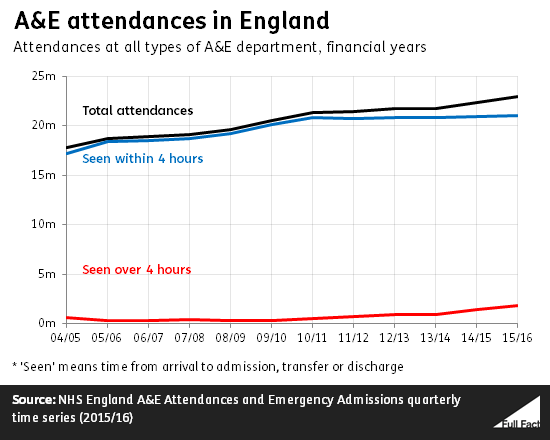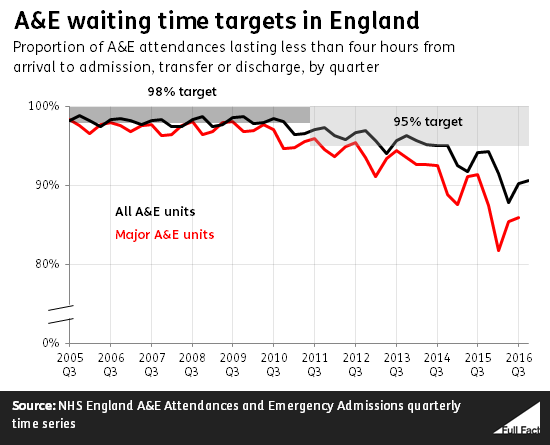What was claimed
Two and a half thousand more people every day are being treated within four hours in A&E departments.
Our verdict
Correct, measuring patient attendances from 2009/10 to 2015/16.
What was claimed
Two and a half thousand more people every day are being treated within four hours in A&E departments.
Our verdict
Correct, measuring patient attendances from 2009/10 to 2015/16.
What was claimed
1.8 million people had to wait longer than four hours for treatment in A&E departments last year.
Our verdict
Correct, for A&E attendances rather than individual patients.
“1.8 million people had to wait longer than four hours last year in A&E departments”
Jeremy Corbyn, 11 January 2017
“The fact [is] that we are seeing more people being treated in our NHS. Two and half thousand more people are treated within four hours every day in the National Health Service.”
Theresa May, 11 January 2017
The number of A&E visits that took more than four hours to process did hit 1.8 million in 2015/16, according to data from NHS Digital. The previous year it was 1.4 million.
The Prime Minister replied that 2,500 more daily visits are being processed within four hours. That’s also true: over 900,000 more annually since 2009, if you look at all types of A&E departments. Both the ‘good’ and the ‘bad’ figures can be on the rise simultaneously, as many more people are visiting A&E overall.

The target has been 95% since 2010. It used to be 98%.

A footnote: in all cases, these figures are for the number of attendances at A&E rather than the number of individual patients. They also cover England only.
Full Fact fights for good, reliable information in the media, online, and in politics.
Bad information ruins lives. It promotes hate, damages people’s health, and hurts democracy. You deserve better.